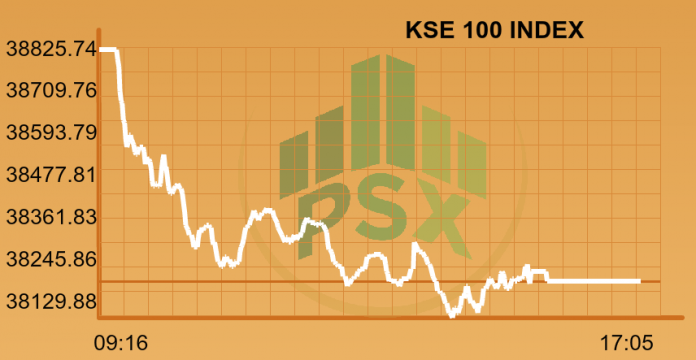Early on Wednesday morning, a rather strange development took place on the Pakistan Stock Exchange (PSX). Multiple companies of varying sizes and from different sectors of the economy issued notifications announcing that they were expanding their authorised share capital.
Among them were Sapphire textiles, Kohat cement, AGS, Suraj, Ferozsons pharmaceuticals, and Crescent among others. But what does this trend mean and where is it coming from?
The sudden increase in authorised share capital by all of these companies has likely been prompted by tax reforms expected to be included in the upcoming federal budget which is set to be presented on the 9th of June. Industry experts are expecting the finance minister Ishaq Dar led team to levy a tax on companies’ reserves. In order to circumvent this tax, companies are seeking to deplete their reserves by increasing dividends amongst shareholders.
But what are the mechanics of this? Let’s start by understanding the basics.
Accounting 101
When companies declare their profits, it’s not necessary that they keep all the profits to themselves. They distribute some profits among shareholders in the form of dividends, and the rest they retain for themselves. However, this profit does not always mean that there is cash left with the company.
Let’s take an example. In 2023, Company X makes a revenue of Rs 100 million. Out of the total revenue, Rs 80 million were the expenses incurred by the company, which means that the company is now left with a profit of Rs 20 million. One option would be to distribute the Rs 20 million amongst shareholders. Company X has four shareholders, so each would receive Rs 200,000 consequently. Another option is that the company retains the profits.
On the other hand, if the company decides to distribute all profits, it requires cash and it’s not necessary for the company to be already holding the cash. As Company X made a profit of Rs 20 million, you may assume that it already has the amount. Whilst that may also be the case, sometimes it may have cash below or above the total profit amount. How does this happen?
In accounting when we calculate profit, we don’t calculate the amount of money that’s coming in. Instead, it’s the amount of invoicing done within a set period of time. For example, some money may be entering based on the invoicing done in the previous year. Simply put, money coming in and going out is irrelevant to the profit and loss evaluations done in accounting majorly. Profit is derived based on the amount of invoices raised or billing done. The cash itself can be below or beyond Rs 20 million for Company X, depending on how the expenses are paid.
Given that the company retains the Rs 20 million profit (i.e. does not declare as dividend), this will enter as reserves in the balance sheet. Reserves will increase over the years. There’s an overarching trend in Pakistan that companies mostly retain profits.
Response to tax reforms?
If the government ends up imposing a tax on retained profits or reserves, any company that has reserves over a certain amount will have to pay a 5% additional tax. For example, if a company has reserves of Rs 1 billion, it’ll have to pay an additional tax of Rs 50 million.
There’s uncertainty whether this tax will apply based on the previous financial year or the upcoming one. Despite the unclarity, companies are trying to avoid this tax. Now, how can companies avoid this tax?
One way is to declare dividends. However, companies may not have cash or simply be unwilling to do this. Another option is a loophole presumably. Dar may close the loophole, we don’t know yet as it’s a developing situation. Irrespective of that, what is the loophole?
Companies may declare bonus shares. Now, what are those?
Let’s assume that Company Y has reserves or accumulated profits of Rs 1 bn, which haven’t been distributed as dividends amongst shareholders. Now, if you have a share of Rs 10, the company issues shares of Rs 100 million. Multiplying Rs 10 with Rs 100 million means that reserves of Rs 1 billion that the company had, have been distributed in kind rather than cash.
By issuing new shares, the company has increased its authorised share capital. These are bonus shares. Presumably, the loophole is that companies believe that they can circumvent the tax by issuing bonus shares. Reserves will deplete as a result, and shareholders will acquire shares which they may sell to gain cash.
Hence, the PSX was swamped with notices today regarding companies wanting to expand their share capital. They are basically preparing to give bonus shares. Once this happens, their reserves will finish and issued share capital will increase, enabling them to save tax money.

























Bonus Shares dont increase the authorized share capital – but the Paid up or issued share capital.
Bonus shares are also viewed in a negative light sometimes as the companies can use them as a minority oppression technique.
Not issue Dividends. Only Bonus shares. Minority shareholders sell their Bonus shares to meet their liquidity requirements – thus further diluting their ownership.